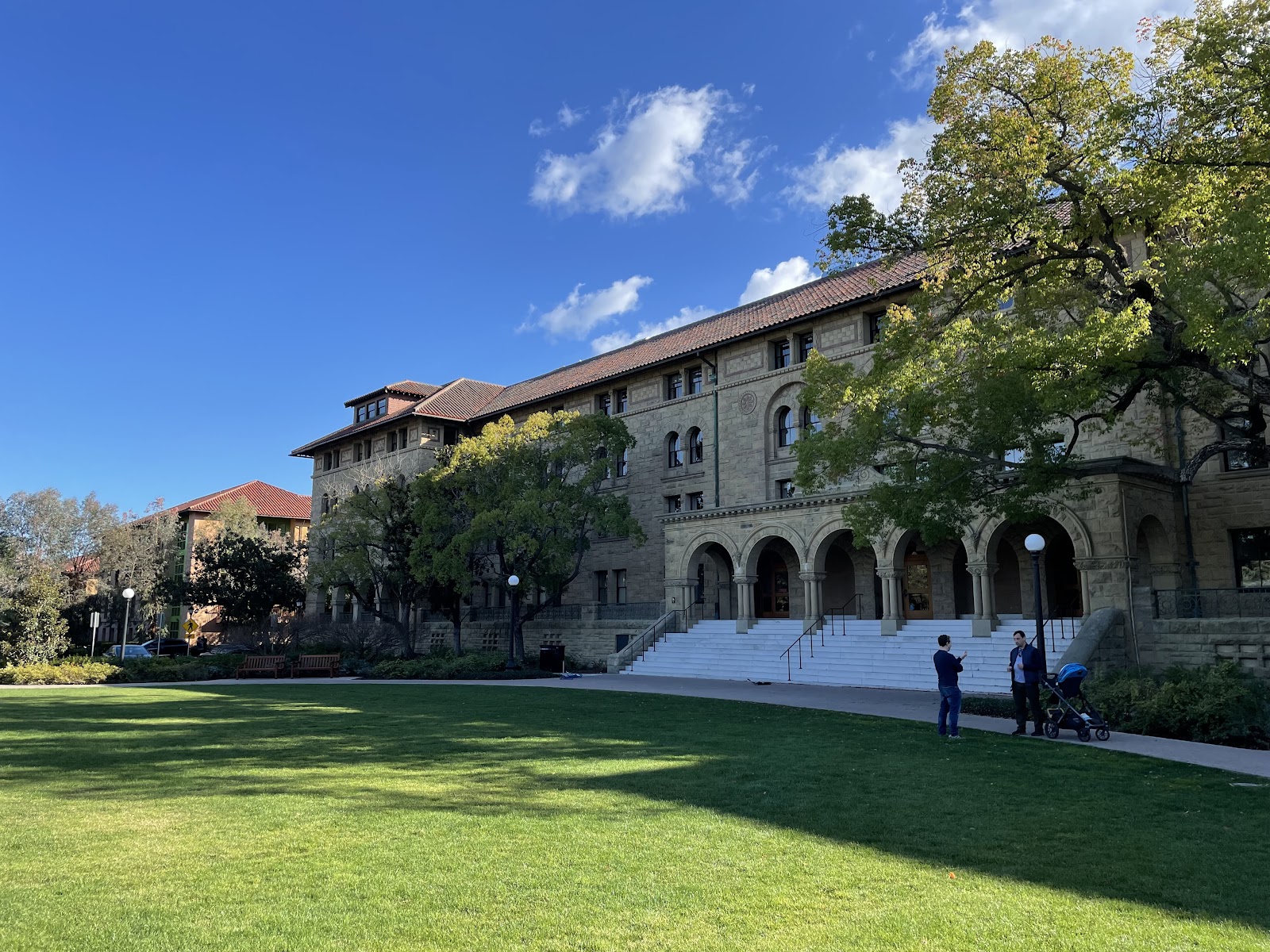“Leaders from the far left to the far right party have often used the diversity of the French national team to craft their own narrative of what it means to be French,” said Fatoumata Seck, Ph.D. ’16, an assistant professor of French and Italian at Stanford. She’s referring to an unexpected target: the country’s national soccer team.
Seck’s comments came as part of a Wednesday roundtable discussion on the role French soccer plays in exposing post-colonial tensions in contemporary France. She spoke alongside French literature and culture professor Cécile Alduy and University of California, Los Angeles professor and French and Francophone Studies Chair Dominic Thomas. The event, “So Foot: Soccer and Multiculturalism in France,” was hosted by the Department of French and Italian and the Division of Literatures, Cultures and Languages.
France has a long history of colonization, particularly in West Africa. France expanded aggressively into West Africa during the 19th century, with the goal of turning West Africa into a “French state.” While formal French rule in Africa ended in 1962, many individuals from former French colonies have immigrated to France since. In the 2018 World Cup, 12 out of the 23 players had African ancestry, making it an easy flashpoint for conversations about diversity in a majority-French country.
These demographics of the soccer team have also long been visible on millions of television screens, notably in 1998 when the French national team won its first World Cup. The winning national team was hailed for its multiculturalism — especially as many of its members were not ethnically French.
“Soccer, meeting with the television coverage, became an absolutely crucial moment in French history for questions about diversity in the public debate,” Thomas said.
The slogan “Black, Blanc, Beur” — Black, white, Arab — was born out of the 1998 victory, and was used by the French media to comment on the diversity of the winning French national team. According to Seck, this French national team’s victor was seen by many as a victory of diversity as well as a symbol of France’s model of national integration.
Alduy, who was in France at the time of the victory, echoed this sentiment. She recalled a sense of euphoria among players and politicians likewise — although she feels that the win made the political elite believe they no longer needed to think about race.
Yet, according to Thomas, France remains a country organized around racial categories due to its history of colonization, and this shapes the way in which France speaks about race today, with “a majority population trying to define a minority.”
Years after the 1998 victory, race still remains largely absent from conversation in modern day France, according to the speakers. In fact, France removed the word “race” from its Constitution in due to the historical connotations attached to the word. For many French, the word race is a reminder of Nazi Germany, a regime that categorized its population by race.
“The word race is impossible to maneuver,” Alduy said. “I can use the word race in English, but in French it’s so much harder for me.”
Seck said this refusal to talk about race has created a “tension in representation” for many soccer players who have to “not bring up race to integrate and assimilate.”
Additionally, Seck said the public narrative surrounding players is often different depending on their origin country, especially if a player comes from one of France’s former colonies.
However, despite these racial tensions, the panelists agreed soccer has become a reflection of politics and power. In the French case, the diversity of the French soccer team speaks to the increasing globalization of soccer as a whole.
“Athletes have become these international icons and tremendously visible that in some ways manage to sort of exceed some of these racial stereotypes,” Thomas said.
Contact the news sections at news ‘at’ stanforddaily.com
